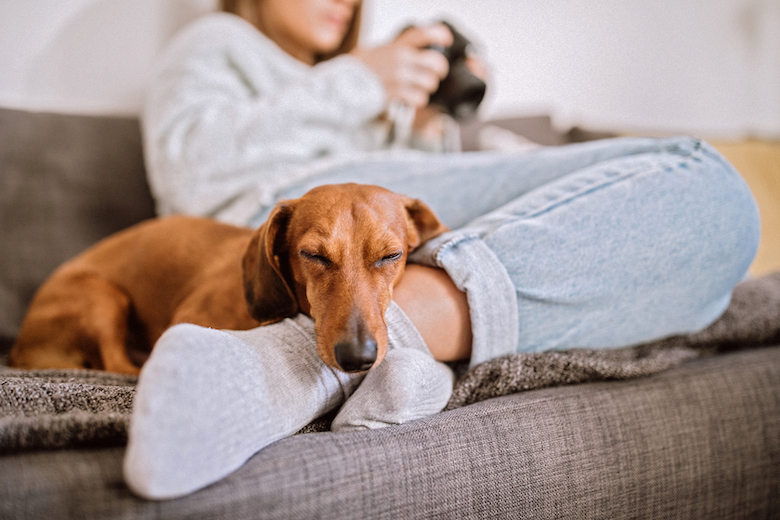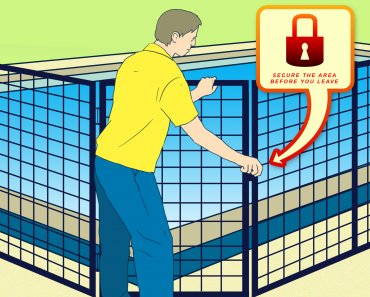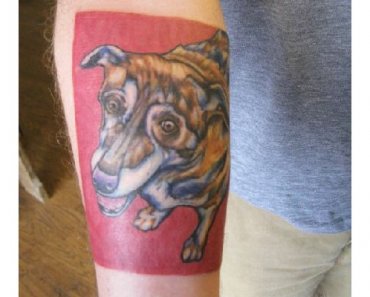
We’re living in a scary world right now. The coronavirus continues to spread along with it a lot of uncertainty. How do you and your dog cope if the global pandemic hits your household? Here’s what pet owners need to know about the coronavirus and dogs
Can you catch COVID-19 from your dog? Can you give it to your dog?
The current thinking is still a big NO.
The Centers for Disease Control and Prevention’s (CDC) website says in big, bold letters, “At this time, there is no evidence that companion animals, including pets, can spread COVID-19.”
And Veterinarian Lori Teller, with the American Veterinary Medical Association, tells Dogster, “It does not appear at all that dogs or cats can serve as a host for COVID-19.”
But didn’t a dog in Hong Kong test positive for the virus?
The Hong Kong dog, a 17-year-old Pomeranian, with a weak positive for the virus is still a mystery. But late last week, after several tests, the pooch tested negative.
“At this point, it’s not worrisome,” Dr. Teller says. “Did the infected owner sneeze or cough on the dog? Was it a faulty test kit? Was there environmental contamination? We don’t know what triggered that, but the dog never showed signs of infection.”
[Update: Sadly, the Pomeranian, passed away on Monday, March 16. According to Dr. Teller, it is believed that the dog died from the stress of the isolation, not from COVID-19.]
So far there are more than 125,000 cases of COVID-19 worldwide in people, and one mystery test in a dog. “Consider all the cases around the world. China, Hong Kong, Italy, no other dogs testing positive. With the rate of disease in people, if it were transmittable to dogs and cats, we’d already be seeing it,” Teller says.
Read More: Can My Dog Get the Coronavirus? Here’s What You Need to Know
If you’re quarantined or sick what precautions should you take with your dog?
Out of an abundance of caution, the CDC recommends if you’re exposed to the virus, or have it, you should limit interaction with your pets, just like you would with people in your home.
The agency says if you’re symptomatic, “avoid direct contact with pets, including petting, snuggling, being kissed or licked, and sharing food.” It’s OK for service dogs to remain with their handlers.
“They’re not so worried the pet will get it, but we don’t know yet, if you sneeze on the pet, and someone else touches the pet, could they get it from the droplets? If you do need to have contact with your pet, wear gloves and a mask,” Teller says.
You can also have another person in your home, who is not sick, be the primary caregiver for the pet. Teller advises you don’t need to send your pet away, just take precautions.
What food and supplies does my dog need during a quarantine?
Experts say plan like you would for a natural disaster, always have two weeks of food, medication, supplements, and anything your dog needs or loves.
Diane Vukovic, author of Disaster Preparedness for Women, recommends getting a month’s worth of stuff.
“The supply chain goes crazy during disasters, and you don’t want to have to fight with someone in the store for the last bag of kibble for your dog,” Vukovic says. “It’s also possible that you could start showing symptoms near the end of your quarantine period. Having extra supplies on hand means you don’t have to worry about shopping while sick.”
How can I exercise my dog if I’m self-isolating?
This gets a little tricky. If you live in a house Teller says not to walk around the neighborhood.
“You may have to toss the ball in the backyard,” Teller says.
If you live in an apartment, it’ll be more difficult. Teller advises those that are self-isolating and at greater risk should practice social distancing when taking the dog in and out and do so quickly. Or if you have someone helping you, such as a dog walker or a family member that is not at as great a risk they can run your dog outside.
Wash your hands before and after handling your dog.
How do I care for my dog if I get COVID-19?
If you test positive for the virus, your local health department will be notified. Tell them you have a dog and ask for their advice.
“They will work with your veterinarian and state vet to determine the best course of action. Public health officials will step in, and it will be a case-by-case plan depending on your circumstance,” Teller says. “No one’s pet is going to be permanently removed from their home. If you have a large dog that needs to go out to the bathroom, they’ll work with you to figure out the most appropriate course of action.”
What if I’m quarantined and my dog needs to go to the vet?
If it’s a routine appointment call the veterinarian’s office, explain what’s going on and reschedule the appointment. Even if you’re not quarantined it’s a good idea to call the vet and see if you should really come in during this time or if appointments such as a well-visit can be rescheduled.
If it’s an emergency situation call your local health department, they will give you advice on what to do.
For more information on this changing crisis, bookmark the CDC and the American Veterinary Medical Association’s websites.
Top Photograph: Pekic/Getty Images


























